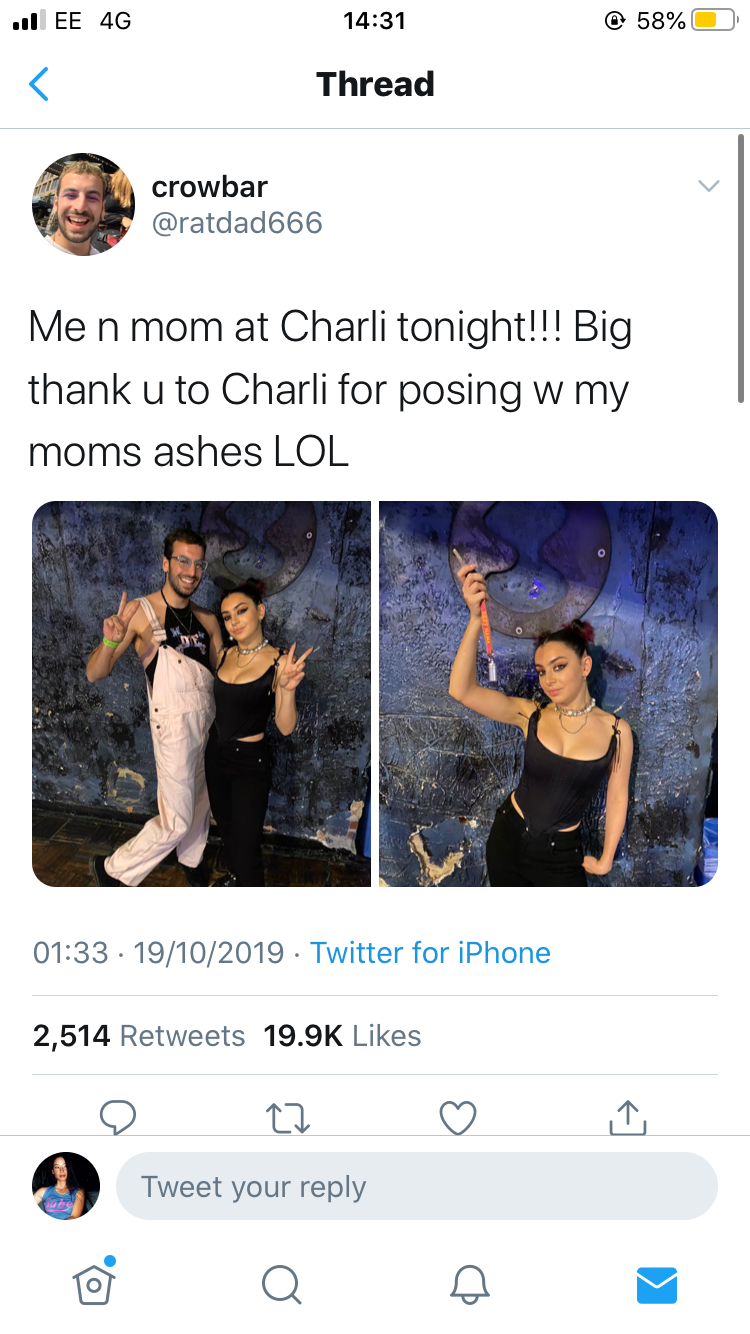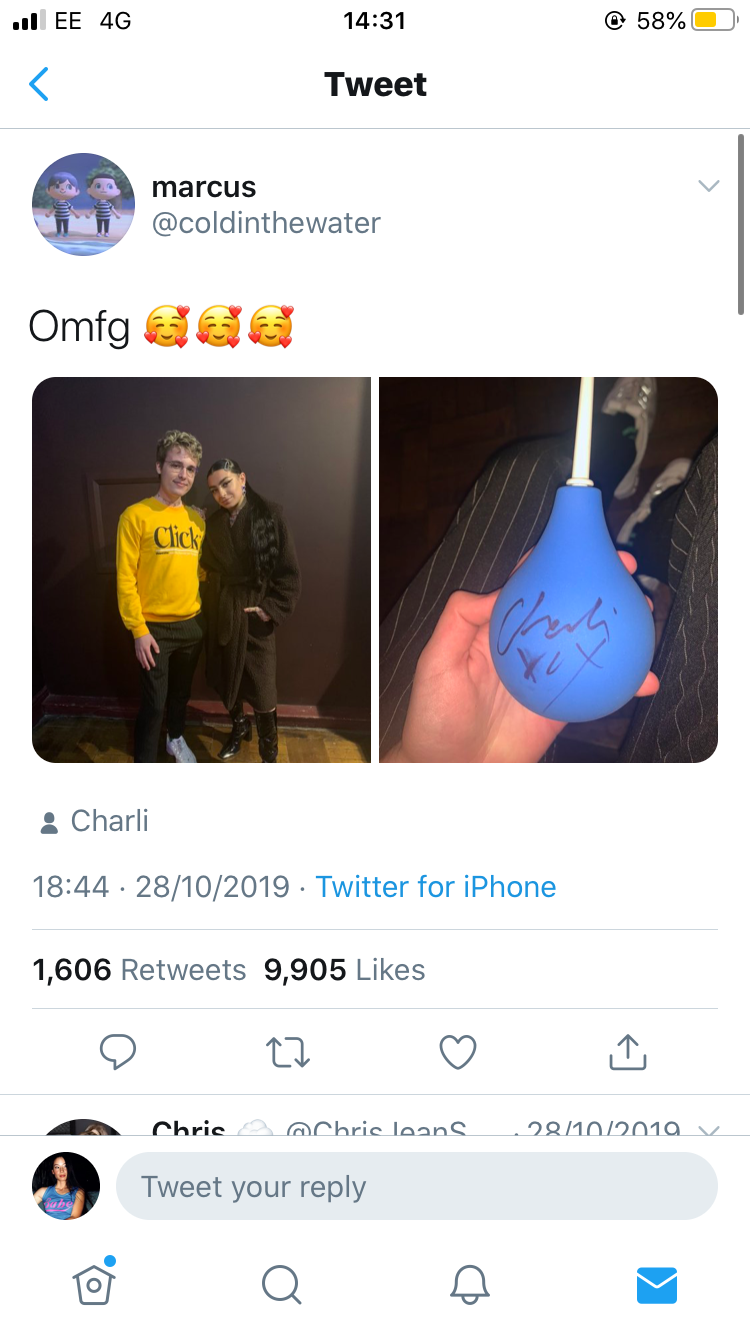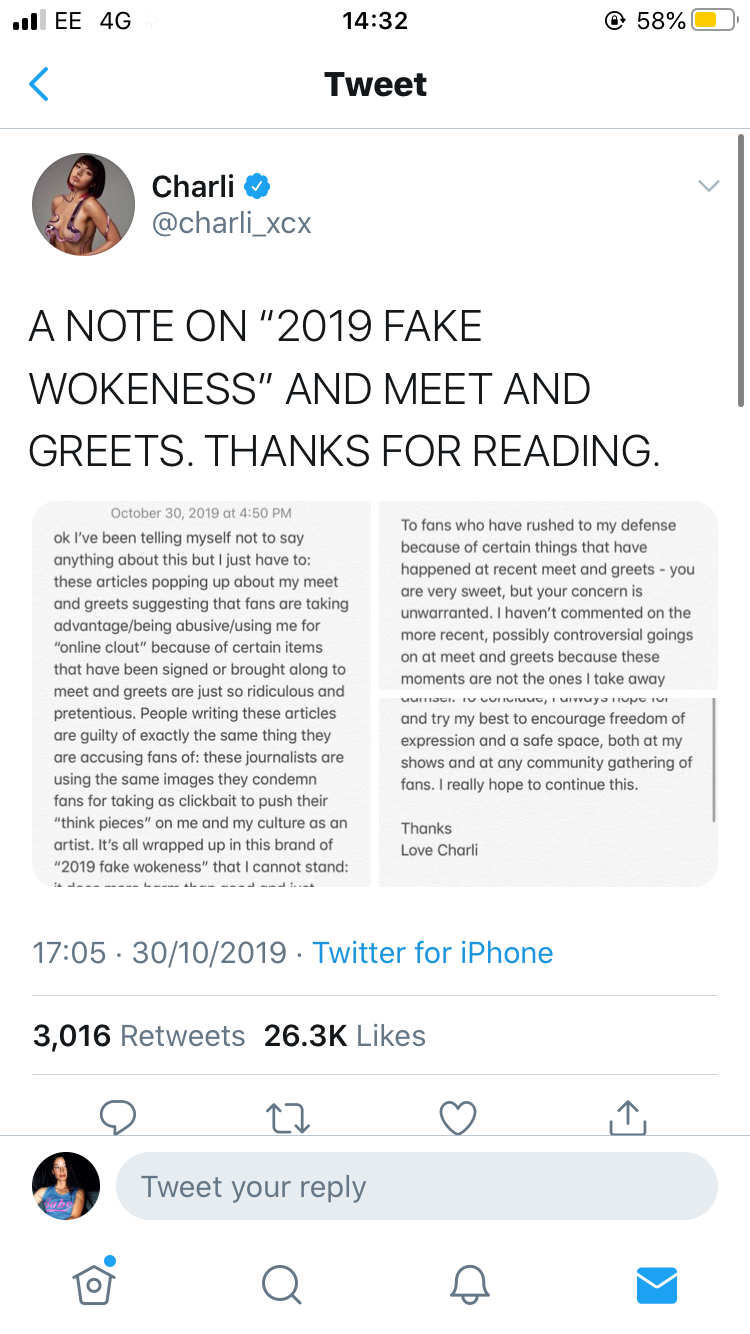FYI: your social media persona isn’t working IRL!
Image: By Halima Jibril
Can social media ruin real-life interactions? Not always, but maybe sometimes. The dynamics between fans and artists are so different from many of the other dynamics you’ll find on social media, that it’s hard to give a clear answer. But with clout chasing being more and more prevalent, we see people act very differently on social media than they might do in real life. This is especially easy for fan accounts, who don’t have to actually show their faces unless they post selfies.
We have a tendency to separate ourselves from famous people. We often view them as people above us, as if they are a different type of human. If you’ve ever been to a concert of someone you admire you might’ve felt the “they’re actually real”-feeling, which I would say stems from how we generally view celebrities. With social media also being a big part of how we interact with artists and within the fandoms/communities, real-life interactions become fewer with exceptions for events such as concerts. And while fan interaction on social media can be beautiful (I’ve met friends online who I still, years later, keep up with), it can be just as toxic; both when fans interact with each other and when fans interact with artists.
One of the most prominent examples of fans being toxic towards an artist right now is what’s that has been going on with Charli XCX during her meet and greets. Fans have, for example, had her pose with their dead mother’s ashes (https://twitter.com/ratdad666/status/1185353128415289353?s=20) and sign their douche (https://twitter.com/machinewrld/status/1188889335359311872?s=20), without knowing what it was. Fans later posted these interactions on twitter and have kept the posts up despite the criticism they’ve encountered. And while Charli herself addressed these events on Twitter after numerous articles were written about it, saying everything she’s done during these meet and greets has been consensual and accusing the writers of “fake wokeness” (https://twitter.com/charli_xcx/status/1189589055631249408?s=20), the questions raised in those articles are worth discussing.
These fans do not view Charlie as an independent person who, just like them, has feelings. She instead becomes a prop for them to use for clout, which they’ve succeeded with, as the meet and greet-tweets gathered 2-3 thousand retweets and 10-20 thousand likes. As I mentioned, Charli addressed these events and protected her fans. While these problems did not start with her fans and definitely won’t end with hers- looking at unhealthy ways fans interact with artists is important to create a safe and comfortable space where both can connect.
Normalising this inappropriate behaviour brews a constantly growing toxic space, which will most likely end with real-life interactions, like meet and greets, declining. For someone to put themselves out there like artists do during meet and greets requires feeling safe and comfortable, something most people won’t feel, if they’re at risk of having to pose with a fan’s dead mother's ashes.
It does not only harm the artist, but it can also harm the interactions between fans, or just people you meet in real life. While I think certain tweets or posts are hilarious, I always keep in mind that the way people phrase what they say, most likely won’t work in real life. Unless they’re around a specific group of people who fully understand what’s going on. For example: back in 2016-17 people would tell each other to kill themselves during conversations on Twitter- both to friends and complete strangers. Now imagine that happening while you’re talking to a friend in real life, or someone you just met or don’t know very well. You have to be mindful of what parts of the “social media-personality” you bring into real life because it does not sit right with everyone. Giving your douche to an artist to sign might be super funny in stan-twitter-theory, but to actually bring it, or your mother’s ashes, to that artist in real life is not as funny as you think it is.
So, let your social media persona be what it is: something you use on social media. Realize that the way you interact might not work with everyone. As much as clout chasing might matter to some people online, others in real life will not care that you got a thousand retweets thanks to putting an artist in a situation they might not want to be in. And please: if you’re meeting one of your favourite artists, assume they would not like to hold your mother’s ashes while posing for a picture.
By Nilo Khamani
(she/her)
Nilo is a First-Person and Opinions writer @ ASHAMED!
Read more about Nilo on OUR TEAM! page.




